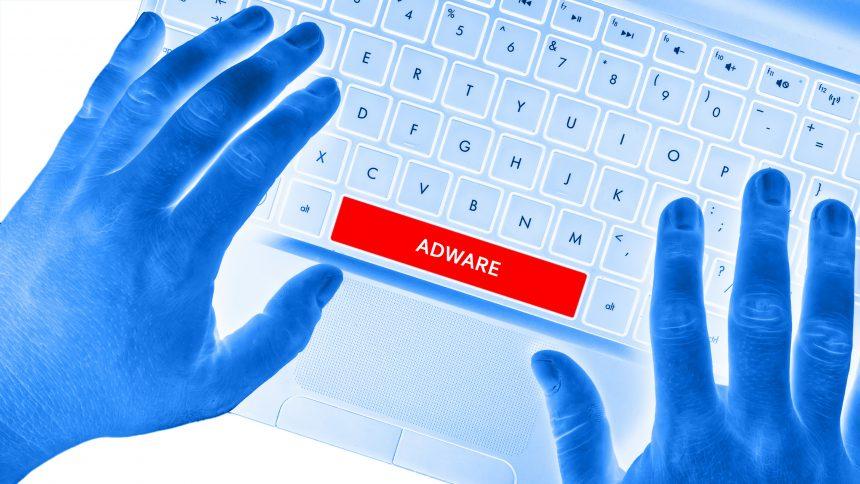Adware, a type of malicious software, primarily aims to deliver unwanted advertisements to users while they browse the internet. Unlike traditional malware that may steal personal data or compromise system security directly, adware focuses on generating revenue through advertising. This is typically accomplished by tracking user behavior online, which allows it to serve targeted ads. However, the presence of adware can lead to a host of other issues, including compromised privacy, slowed system performance, and unwanted software installations.
The Threat: Thoabsoul.com Ads
One specific threat in the adware landscape is Thoabsoul.com. This adware promotes a variety of potentially harmful websites and scams, often using intrusive pop-up ads, banners, and other forms of aggressive advertising. Victims may encounter misleading advertisements claiming to offer software downloads, discounts, or special deals on various products. Once installed on a user’s system, Thoabsoul.com operates stealthily, redirecting web traffic to affiliated websites and generating revenue for its creators through clicks and impressions.
The installation of Thoabsoul.com often occurs via bundled software, where users inadvertently agree to install additional applications while downloading legitimate software. This method exploits users’ lack of attention during the installation process, allowing adware to infiltrate their systems without explicit consent. The consequences of having Thoabsoul.com on your system can be significant. Users may experience an increase in intrusive ads, slower browsing speeds, and frequent browser crashes. Additionally, this adware can compromise personal information and lead to further malicious software installations if left unchecked.
Adware like Thoabsoul.com typically aims to generate revenue through advertisement clicks rather than direct data theft, which distinguishes it from more aggressive forms of malware such as browser hijackers. While adware serves advertisements and monitors browsing habits, browser hijackers often change browser settings, redirect users, and block access to legitimate websites. Both pose unique risks but operate in different manners.
Detection Names for Thoabsoul.com
Various anti-malware solutions employ different detection names for Thoabsoul.com. Some of the common detection names include:
- Adware.Thoabsoul
- Adware.Generic
- PUP.Optional.Thaosoul
If you have run a system scan and encountered any of these names, it indicates that Thoabsoul.com or similar adware is present on your system.
Similar Threats to Thoabsoul.com
Users should also be aware of other adware threats that may arise, including:
- MySearch123.com
- GetRichQuick.com
- DealPly
These adware programs may share similar characteristics, including intrusive advertisements and potential redirection to unsafe websites.
Comprehensive Removal Guide for Thoabsoul.com
Removing Thoabsoul.com requires a systematic approach to ensure all traces of the adware are eliminated. Here’s a step-by-step guide to help you through the removal process:
Step 1: Uninstall Suspicious Programs
- Access Control Panel:
- Press Windows + R to open the Run dialog.
- Type
controland press Enter.
- Navigate to Programs and Features: Click on Uninstall a program under the Programs section.
- Look for Unfamiliar Applications: Scroll through the list and look for any applications that you do not recognize or that have been installed recently.
- Uninstall: Right-click on the suspicious program and select Uninstall.
Step 2: Reset Your Browser Settings
Resetting your browser can help remove unwanted changes made by Thoabsoul.com.
For Google Chrome:
- Open Chrome.
- Click on the three dots in the upper right corner and select Settings.
- Scroll down and click on Advanced.
- Under Reset and clean up, select Restore settings to their original defaults.
- Confirm by clicking Reset settings.
For Mozilla Firefox:
- Open Firefox.
- Click on the three horizontal lines in the upper right corner and select Help.
- Click on Troubleshooting Information.
- Click on Refresh Firefox and confirm.
For Microsoft Edge:
- Open Edge.
- Click on the three dots in the upper right corner and select Settings.
- Click on Reset settings.
- Choose Restore settings to their default values and confirm.
Step 3: Scan for Remaining Threats
- Download and Install Anti-Malware Software: For effective removal, download SpyHunter. It is highly recommended for detecting and removing adware and other malware.
- Run a Full System Scan: Open SpyHunter and initiate a full system scan to detect any remnants of Thoabsoul.com or similar threats.
- Follow the Removal Instructions: Once the scan is complete, follow the prompts to remove detected threats.
Step 4: Clear Browser Cache and Cookies
- For Google Chrome:
- Click on the three dots > More tools > Clear browsing data.
- Select All time, check Cookies and other site data and Cached images and files, then click Clear data.
- For Firefox: Click on the three horizontal lines > Options > Privacy & Security > Cookies and Site Data > Clear Data.
- For Microsoft Edge: Click on the three dots > Settings > Privacy, search, and services > Clear browsing data > Choose what to clear.
Further Actions for Prevention
To prevent the installation of adware like Thoabsoul.com in the future, consider the following tips:
- Always Choose Custom Installation: When downloading software, opt for custom installation options to avoid unwanted bundled software.
- Avoid Suspicious Links and Ads: Be cautious about clicking on ads and links from unfamiliar sources.
- Keep Your Software Updated: Regularly update your operating system and applications to reduce vulnerabilities.
- Use a Reliable Anti-Malware Tool: Regularly scan your system with anti-malware tools like SpyHunter to detect and remove potential threats.
Conclusion
Adware such as Thoabsoul.com presents a significant risk to users, resulting in unwanted ads, privacy issues, and overall system degradation. By understanding the nature of this threat and following the removal guide, you can regain control of your system and prevent future infections. For the most reliable protection, consider downloading SpyHunter to scan your computer for free and ensure a malware-free environment.





